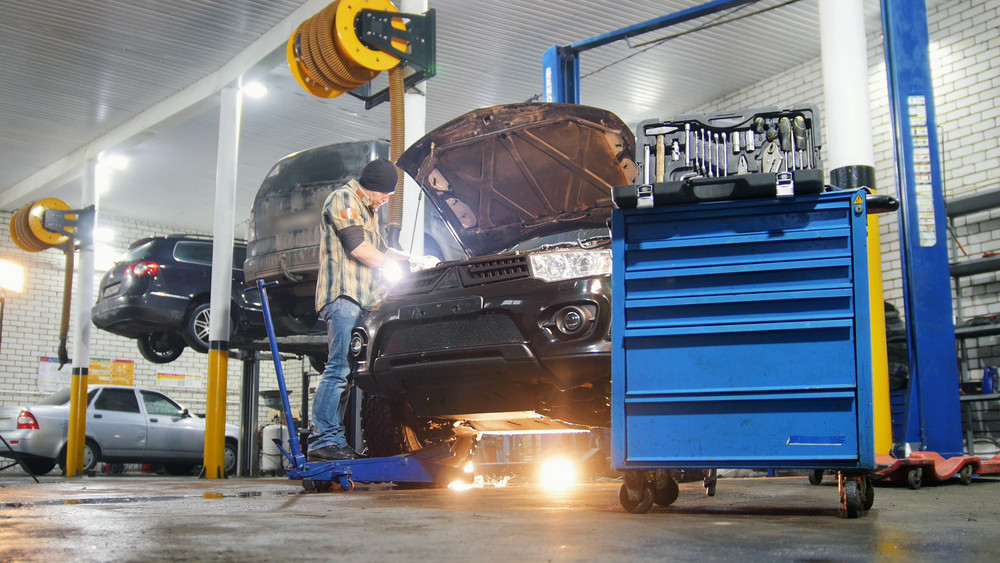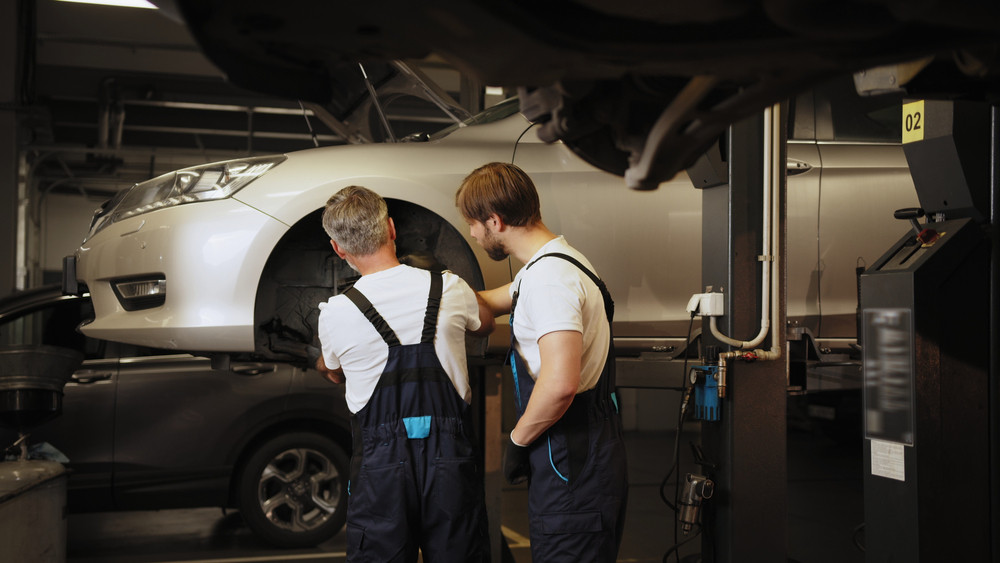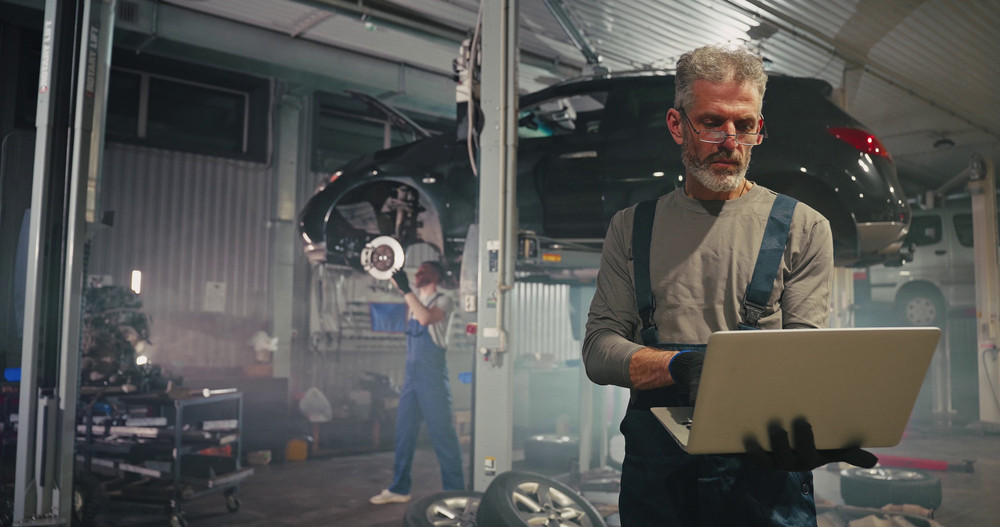
What Sets a Full-Service Car Repair Shop Apart From the Rest

Highlights
- Full-service car repair shops combine comprehensive maintenance, diagnostics, and emergency response.
- Experienced technicians with ASE certifications deliver precision and trust.
- Value-driven mix of expertise, equipment, and transparent pricing outperforms dealerships.
- Shops like Zentner’s offer 24/7 emergency support, fleet services, and custom care.
- Professional service ensures safety, long-term reliability, and peace of mind.

Comprehensive Maintenance Under One Roof
A full-service car repair shop offers a wide range of services beyond basic oil changes. From routine inspections and brake system checks to transmission service, wheel alignment, and air conditioning repairs, clients receive all necessary care in one location. They also handle complex diagnostics, engine tune-ups, and electrical system troubleshooting. This breadth ensures continuity and convenience, avoiding multiple visits to different service providers. Customers benefit from coordinated service history, consistent quality, and reduced downtime. Rather than piecing together various services, one full-service shop manages everything from suspension diagnostics to fleet vehicle maintenance, making it a one-stop solution for all vehicle care needs. This convenience is particularly valuable for busy individuals or families looking to maintain their vehicles with minimal disruption to their routines. Additionally, having all records consolidated in one place helps identify recurring issues more quickly and develop a long-term maintenance strategy.
ASE-Certified Technicians and Advanced Diagnostics
Tank mechanics completed hands-on training and examinations backed by the National Institute for Automotive Service Excellence (ASE). Shops staffed by ASE-certified technicians ensure high standards and accuracy. In full-service auto shops, every diagnostic tool is leveraged for precise engine analysis, error code reading, and component inspection. Professional mechanics benefit from experience and updated tools to diagnose and repair issues quickly and accurately. This saves time and prevents misdiagnosis. Certified technicians are also trained in the latest diagnostic equipment and software platforms needed to service modern vehicles. Their expertise allows them to pinpoint root causes rather than just addressing symptoms, resulting in long-lasting repairs and restored vehicle health. This attention to precision helps maintain engine performance, fuel efficiency, and vehicle longevity.
Value and Trust of a Local, Experienced Shop
Independent repair shops often outperform larger dealerships in cost, customer service, and personalized care. Local auto shops offer versatility across many car makes and models, treating customers like family and delivering honest, affordable service. They often offer financing or discount programs tailored to local customers, with transparent pricing and flexible scheduling. Their familiarity with area weather conditions, road issues, and driving patterns allows them to tailor maintenance recommendations to real-world use. Additionally, a long-standing local shop builds trust through community relationships and word-of-mouth referrals, making them a dependable partner for long-term vehicle care. Over time, this trust becomes invaluable, encouraging loyalty and reducing the need for constant re-evaluation of service providers.
Emergency and Fleet Services Built In
Full-service repair centers extend beyond routine cars to support commercial fleets and emergency needs. For example, Zentner’s Auto Service offers 24/7 emergency service, standardized routine maintenance for fleets, and same-day estimates handled by ASE-certified technicians using NAPA parts. These comprehensive options add flexibility for local businesses and individuals alike. When customers rely on their vehicles daily, shops capable of offering immediate assistance, whether roadside or in-shop, become indispensable. Fleet clients benefit from customized service schedules, volume discounts, and unified reporting, saving them time, reducing vehicle downtime, and ensuring compliance and safety. With comprehensive options, experienced repair shops become a critical support system for both everyday drivers and commercial operations alike.
Original Equipment Manufacturer (OEM) Tools and Parts
Full-service shops invest in high-grade, OEM-quality parts and advanced equipment. Repairing with certified parts preserves vehicle warranties while ensuring optimal performance under warranty conditions. Their access to manufacturer-level diagnostic tools supports complex system calibrations, such as ABS or electronic stability control, impossible with generic tools. Equipment reliability is further boosted by routine servicing of lifts, fluid recycling machines, and alignment systems. These investments uphold safety standards and fuel efficiency. Dealership or budget shops often skip such investments, but comprehensive repair centers prioritize equipment alignment with vehicle complexity and consumer expectations. This results in greater precision, fewer return visits, and increased customer satisfaction over time.

Transparent Communication and Estimate Clarity
At full-service shops, professionalism extends to clear communication. Technicians produce detailed estimates, explaining labor hours, parts pricing, and the rationale behind each recommended procedure. Customers receive a step-by-step analysis of diagnostics and immediate approval before work begins. These shops often provide digital inspection reports, photos, or videos to show visible issues and help clients make informed decisions. Clear communication creates accountability and prevents surprises in billing. You’ll know exactly what you’re paying for and why, which sets quality shops apart from shops that cut corners or inflate costs with unnecessary add-ons. This transparency is essential to building trust and encouraging repeat business.
Preventive Programs and Scheduled Care
Full-service shops promote preventive maintenance plans tailored to make, model, and driving inclinations. Rather than only reacting to problems, they monitor intervals for oil changes, filter replacements, fluid flushes, tire rotations, and timing belt checks—preserving vehicle health and preempting dangerous failures. Preventive care extends longevity and resale value while preventing roadside breakdowns. Many offer maintenance subscription plans or loyalty programs with bundled services and seasonal inspections, encouraging continual upkeep. For those unfamiliar with vehicle needs, these programs demystify vehicle maintenance and promote peace of mind through scheduled attention. Investing in prevention is more economical than waiting for major issues to arise.
Warranty Coverage and Quality Guarantees
Most full-service shops back their work with warranties that cover parts and labor for a set time or mileage. These assurances protect customers from workmanship defects and parts failures. Warrantied work also builds accountability: repeat visits and inspections justify deeper oversight rather than patchwork repairs. Shops that handle insurance claims and dealer-authorized warranty work must meet manufacturer specifications, reinforcing credibility. These guarantees cost less than the financial risk of DIY mistakes or turnover with non-warranted mechanics, creating sustained reliability in every repair. Peace of mind is one of the greatest benefits, especially when backed by clear service records and verified technicians.
Trust, Community, and Reputation
Customer satisfaction thrives on community engagement and reputation. Full-service shops earn trust by retaining long-term relationships, servicing multiple vehicles per household. They often sponsor local teams, offer educational car-care clinics, or publish blog tips. These activities highlight their position as experts, not transaction-based providers. Positive client referrals on social platforms further elevate these shops above faceless chains. A consistent presence in community life fosters belonging and underscores genuine care, rather than short-term profits, building loyalty and long-term customer retention. Being part of a community means more than just providing a service—it means being relied upon in ways that strengthen mutual respect and loyalty.
Environmentally Responsible Practices
An increasing number of full-service repair shops are adopting eco-conscious practices as part of their operating model. From proper disposal and recycling of used oil, coolant, and batteries to implementing energy-efficient lighting and low-emission equipment, these shops prioritize both vehicle health and environmental sustainability. Many also opt for biodegradable cleaning agents and participate in local green initiatives or certifications. By integrating these practices, full-service shops contribute to reducing the automotive industry’s environmental footprint. Customers who are environmentally aware increasingly prefer working with businesses that share their values, and these sustainable practices can build customer loyalty while helping the community and environment alike.
